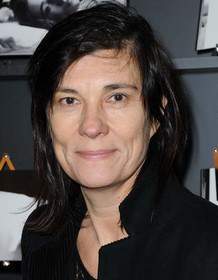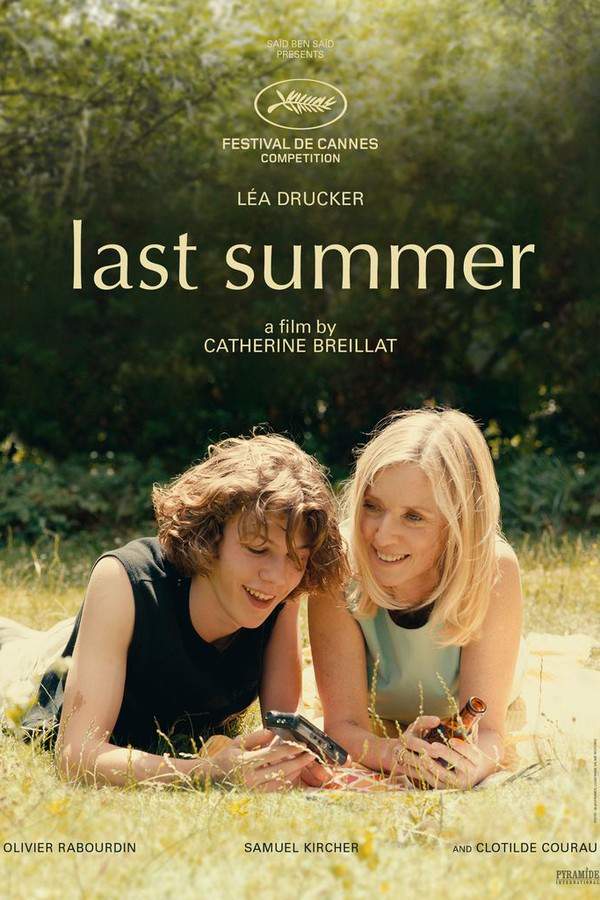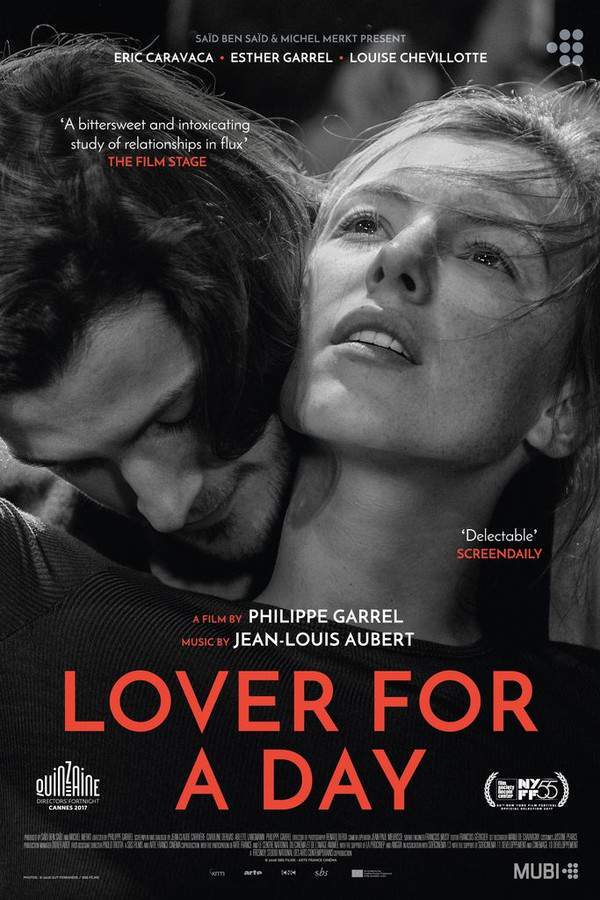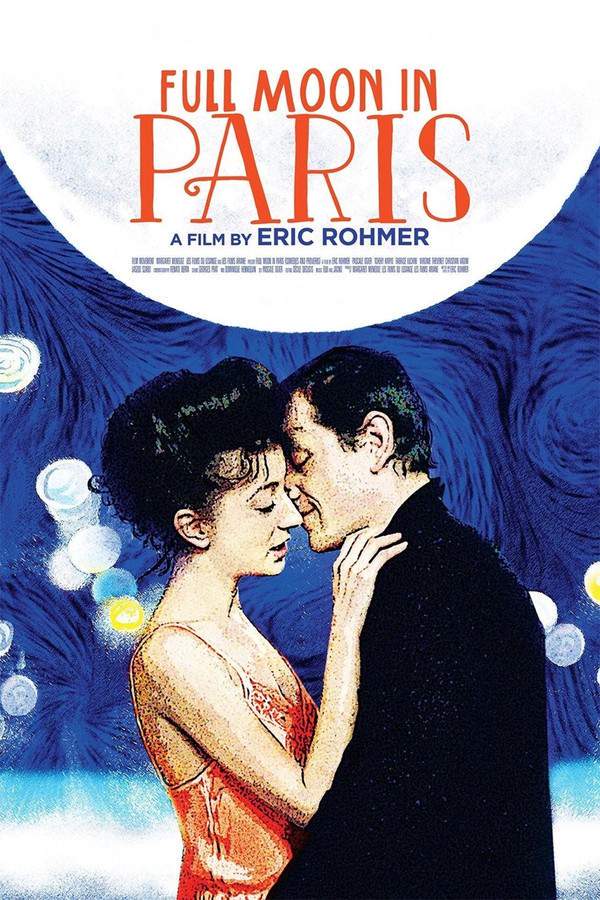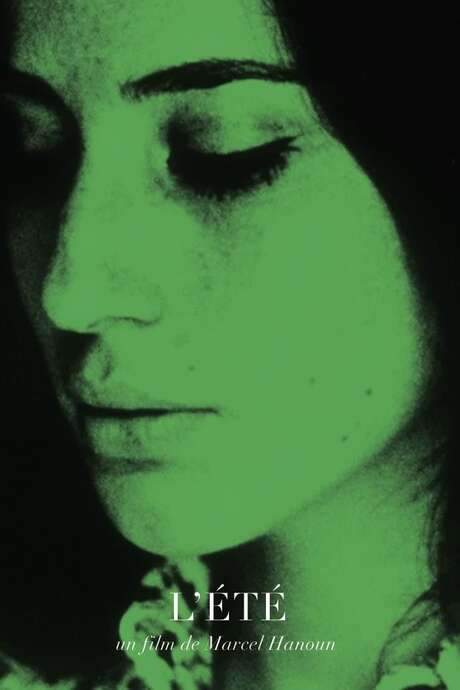Summertime 2016

In the heat of 1971 Paris, a young woman named Delphine leaves her life on a farm, seeking independence and a chance at financial freedom. She becomes involved with Carole, a passionate and enigmatic feminist. Their lives become intertwined as they navigate the city’s revolutionary atmosphere, leading to a transformative love affair that challenges conventions and disrupts their established routines, forever changing their perspectives.
Does Summertime have end credit scenes?
No!
Summertime does not have end credit scenes. You can leave when the credits roll.
Meet the Full Cast and Actors of Summertime
Explore the complete cast of Summertime, including both lead and supporting actors. Learn who plays each character, discover their past roles and achievements, and find out what makes this ensemble cast stand out in the world of film and television.
No actors found
External Links and Streaming Options
Discover where to watch Summertime online, including streaming platforms, rental options, and official sources. Compare reviews, ratings, and in-depth movie information across sites like IMDb, TMDb, Wikipedia or Rotten Tomatoes.
Ratings and Reviews for Summertime
See how Summertime is rated across major platforms like IMDb, Metacritic, and TMDb. Compare audience scores and critic reviews to understand where Summertime stands among top-rated movies in its genre.

72
Metascore
6.6
User Score


92%
TOMATOMETER

72%
User Score

6.7 /10
IMDb Rating

67
%
User Score

3.6
From 135 fan ratings

4.17/5
From 6 fan ratings
Take the Ultimate Summertime Movie Quiz
Challenge your knowledge of Summertime with this fun and interactive movie quiz. Test yourself on key plot points, iconic characters, hidden details, and memorable moments to see how well you really know the film.
Summertime Movie Quiz: Test your knowledge on the themes, characters, and events of 'Summertime' (2016).
Who is Delphine's father?
Michel (Pierre Deladonchamps)
Maurice (Jean-Henri Compère)
Antoine (Kévin Azaïs)
Paul (Gustave Kervern)
Show hint
Full Plot Summary and Ending Explained for Summertime
Read the complete plot summary of Summertime, including all major events, twists, and the full ending explained in detail. Explore key characters, themes, hidden meanings, and everything you need to understand the story from beginning to end.
Delphine Benchiessa, portrayed by Izïa Higelin, is the sole daughter of French farmers, cherishing the simple life of tending to the land with her family. However, her father, Maurice, played by Jean-Henri Compère, has other plans, hoping she will marry. Unbeknownst to him, Delphine is secretly nurturing a romantic relationship with a local girl. On the day of their rendezvous, Delphine is disheartened to learn that her girlfriend intends to wed a local boy, dismissing their relationship as “not serious.” In response to this betrayal, she flees to Paris, setting the stage in 1971.
While wandering the vibrant streets, Delphine stumbles upon a group of spirited women engaging in a unique form of protest by pinching men’s behinds. During this encounter, she helps rescue Carole, a member of this feminist collective, played by Cécile de France, after one of the women turns aggressive. The group, passionate about women’s liberation, quickly draws Delphine into their active protests. When a tragedy strikes, and a friend of one of the group members is subjected to electroshock therapy in a mental institution, the collective is hesitant to intervene. However, Delphine champions the cause, leading to a daring rescue alongside Carole.
In a moment of unexpected boldness, Delphine kisses Carole, who initially recoils in surprise, revealing her reluctance to identify as a lesbian. Despite this, they soon find themselves engulfed in a passionate affair, though Carole grapples with the idea that it may be a fleeting connection. As feelings deepen, Carole confesses the truth of their relationship to her boyfriend, resulting in tension as she struggles to balance her life between him and Delphine.
Tragedy strikes again when Delphine’s mother, Monique, portrayed by Noémie Lvovsky, calls with news that Maurice has suffered a heart attack. Delphine returns home, realizing her responsibilities at the farm will require her to stay longer than anticipated. Armed with insights from the feminist collective, she begins advocating for her parents’ interests among the farming community. Carole, unable to stay away, visits Delphine, only to discover they must keep their love hidden from Monique, who is unaware of her daughter’s sexuality.
As the weeks pass, Carole finds the rural life stifling and struggles with the local populace’s disdain for her progressive beliefs. The need for discretion weighs heavily, and doubts emerge, especially after Antoine, a local admirer of Delphine, suggests she will never leave the farm. When whispers of their clandestine affair begin to circulate, tensions rise, resulting in a confrontation that reveals their secret to several locals, including Delphine’s mother.
One fateful morning, Monique walks in on the couple, forcing a confrontation. While she attempts to maintain a façade of normalcy with Delphine, she vehemently accuses Carole of corrupting her child and demands her to leave. Heartbroken, Carole decides to part ways, prompting Delphine to contemplate escaping with her. Although they board a train together, Delphine ultimately finds herself unable to sever ties with her past and misses their connection to Paris, returning home instead.
Five years later, in 1976, fate has shifted once again. Carole now works at a women’s health clinic in Paris, engaged with another partner. Then a letter arrives from Delphine, who reveals she has finally liberated herself from her parents’ farm and established her own in the south of France. Reflecting on their shared past, she articulates a poignant regret for not having left with Carole five years prior, understanding that the past is immutable and time cannot be reversed.
Uncover the Details: Timeline, Characters, Themes, and Beyond!

Coming soon on iOS and Android
The Plot Explained Mobile App
From blockbusters to hidden gems — dive into movie stories anytime, anywhere. Save your favorites, discover plots faster, and never miss a twist again.
Sign up to be the first to know when we launch. Your email stays private — always.
Watch Trailers, Clips & Behind-the-Scenes for Summertime
Watch official trailers, exclusive clips, cast interviews, and behind-the-scenes footage from Summertime. Dive deeper into the making of the film, its standout moments, and key production insights.
Summertime Themes and Keywords
Discover the central themes, ideas, and keywords that define the movie’s story, tone, and message. Analyze the film’s deeper meanings, genre influences, and recurring concepts.
Summertime Other Names and Titles
Explore the various alternative titles, translations, and other names used for Summertime across different regions and languages. Understand how the film is marketed and recognized worldwide.
Similar Movies To Summertime You Should Know About
Browse a curated list of movies similar in genre, tone, characters, or story structure. Discover new titles like the one you're watching, perfect for fans of related plots, vibes, or cinematic styles.
Quick Links: Summary, Cast, Ratings, More

What's After the Movie?
Not sure whether to stay after the credits? Find out!
Explore Our Movie Platform
New Movie Releases (2026)
Famous Movie Actors
Top Film Production Studios
Movie Plot Summaries & Endings
Major Movie Awards & Winners
Best Concert Films & Music Documentaries
Movie Collections and Curated Lists
© 2026 What's After the Movie. All rights reserved.



